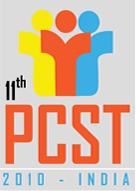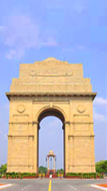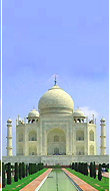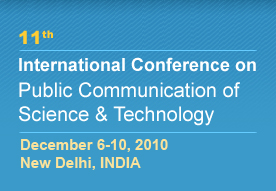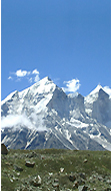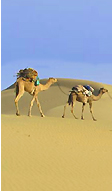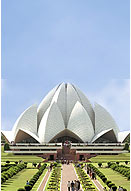Announcements
| # Download PCST - 2010 Announcement (PDF) # Download PCST - 2010 Announcement (Word File) |
# Download PCST - 2010 Registration Form (PDF) # Download PCST - 2010 Registration Form (Word File) |
The 11th International Conference on Public Communication of Science & Technology (PCST-2010)
Science Communication Without Frontiers
Science Communication Without Frontiers
NASC Complex, Todapur, DPS Road, Pusa, New Delhi-110012, India; December 06-10, 2010
being organized by
International Network on Public Communication of Science & Technology (PCST-Network)
National Council for Science & Technology Communication (NCSTC/ DST)
Madhya Pradesh Council of Science & Technology (MPCOST)
International Centre for Science Communication (ICSC)
Indian Science Communication Society (ISCOS)
Indian Science Writers’ Association (ISWA)
National Council for Science & Technology Communication (NCSTC/ DST)
Madhya Pradesh Council of Science & Technology (MPCOST)
International Centre for Science Communication (ICSC)
Indian Science Communication Society (ISCOS)
Indian Science Writers’ Association (ISWA)
www.pcst-2010.org
Public Communication of Science & Technology (PCST) is important for the economic and social wellbeing of society and for the exercise of participatory democracy. It implies the ability to respond to technical issues and problems that pervade our daily lives. It does not mean detailed knowledge of scientific principles, phenomena or technologies, but rather an appreciation of the way science works and how the community can interact with science to help shape its work. New technologies and new media can trigger and sustain public interest in S&T, allowing a dialogue to developing and preparing the people for change.
The 11th PCST Conference will deliberate on both practical and theoretical aspects of science communication, in a globalised world with major inequalities and development challenges. Science communication practitioners and analysts from all continents will compare experiences and perspectives on science-based issues of today and tomorrow.
India, one of the most emerging economies, is uniquely positioned to host a discussion on the role of science in modern society. Poised between modern and developing nations, India represents the future: a world where everything is under challenge including the old frontiers.
Objectives:
The aim of 11th PCST-2010 is to consider new ways of thinking about science communication, and new ways of putting the best ideas into practice, models, tools, policy matters and social factors involved in public communication of science and technology. In the footsteps of previous conferences in Malmo/Copenhagen (2008), Seoul (2006), Barcelona (2004), Cape Town (2002) and before, the Conference will provide an opportunity for the presentation and open discussion of all kinds of ideas, experiences and works related to science communication, popularisation and literacy.
Focal Theme and Sub Themes: The focal theme of the conference is ‘Science Communication Without Frontiers’. Five Scientific Sessions with the following Sub Themes will be organized :
1. A Critical Review of Science Communication in the World: Science communication has different functions in industrialized and developing countries. What are some of the new national approaches being taken in different countries, and how do they compare?
2. Science Communication Studies & Research: This session focuses on practical aspects linking the theory of science communication to practice, including novel and innovative practices, techniques and models of science communication, besides teaching science engagement to scientists and communicators.
3. Role of Science Centres & Science Museums: Case studies and success stories on various aspects of science centres and museums. It will include discussions on science cities, mobile and fixed science exhibitions, science circus, science cafe and planetariums, etc.
4. Science Communication through Mass Media: The session discusses on S&T coverage in mass media, including new media approaches. How can media be employed to promote societal dialogue rather than one way dissemination a in a media society?
5. Globalizing & Localizing Science Communication: The session examines the global issues with local significance and vice versa, while focussing on networking efforts at global, regional and local levels to encourage flow of contents, policies, methods and practices in science communication and their institutionalization.
Special Features: In order to enrich the conference and take optimum advantage of it, following additional features are being planned as part of the Conference :
- a) International Exhibition of Popular S&T Information Products & Publications at the conference venue
- b) Seminar “Towards a Scientifically Aware & Attitudinally Rational World” will focus on critically engaging with science, where science and scientific temper play a role in managing conflicts, crises and uncertainties. The studies covering public attitudes, cross-cultural mapping of public engagement of science and deriving indicators for PCST related aspects will form part of deliberations. This Pre-conference seminar will take place at Khajuraho (Madhya Pradesh) during December 04-05, 2010. The visits of Stone Carving World Heritage at Khajuraho and Panna Tiger Reserve could be yet another point of attraction.
- c) Workshop “Training on Science Communication” will offer practical and hands-on experience to scientists, communicators, journalists, teachers and students, etc., to fine tune their skills and abilities in PCST. The Post-conference workshop is being planned at Jaipur (Rajasthan) during December 10-11, 2010. A Heritage Visit of the Pink City, Jaipur and Taj Mahal World Heritage would be an added feature.
- d) During the conference, discussions, workshops, and round tables will be organized on specific issues and aspects, besides a dedicated session for young researchers and students.
- e) Interactive Hands-on Science activities during the conference.
- f) Encouraging delegates to visit to experience India’s cultural heritage; folk performances; Indian spicy food recipes and many more.
Call for Proposals:
The PCST Network, founded in 1989, aims at promoting public communication of science and technology, encouraging discussion on PCST related issues, and linking practices and theories in varied cultures and countries. The proposals for the 11th PCST 2010 Conference are welcome from individuals, or from groups who wish to propose a joint session. They may cover any of the following aspects of science communication:
- Public engagement strategies;
- Media representations;
- New media challenges and opportunities;
- Theories and models of science communication;
- Evaluation of public engagement initiatives;
- Public literacy and understanding; and
- Informal learning.
Conference Format:
The scientific sessions will have presentation of contributory research papers, review papers, survey analyses, case studies, experiments’ reports, including workshops/ training courses/ lectures by delegates. If necessary, parallel sessions will be organized. Discussions in split groups would offer close exchange of thoughts and ideas. Deliberations will be in English. A sub-theme cannot be the title of a paper/ presentation; select a narrower topic under a sub theme and design your research study around it. Papers should be prepared in standard research paper format, i.e. title of paper, name(s) and address of author(s), abstract, key words, introduction, objectives, methodology, observations, discussion, analysis, inferences, conclusions, recommendations, references, along with illustrations, graphics, and photographs with captions. There would be two poster sessions, workshops and open-ended roundtable.
Who can Participate:
The conference is designed for the participants from all possible interest groups including policy bodies, government agencies, universities, media houses, science and technology institutions, research and development organizations, learned and professional societies, etc. It may attract researchers, teachers and practitioners of PCST movement i.e. scientists, technologists, academicians, science teachers, writers, science communicators, journalists, editors, research scholars, science students and faculty members of journalism, public relations and information officers of scientific organizations, science museums and science centres, representatives of media organizations, newspapers, magazines, science producers of radio/ TV channels, science activists from NGOs; and government officials, policy makers.
How to Reach New Delhi:
New Delhi, the capital of India, is one of the most vibrant and metropolitan cities and serves as a commercial, academic, scientific and cultural hub in the northern India. New Delhi is well connected by Air, Rail and Road from all major cities in India. It is also on air route of all major international airlines. For information : www.incredibleindia.org; www.theashokgroup.com; www.delhitourism.com; www.irctc.co.in; www.airindia.com
Weather:
Weather would be pleasant in December in India. Temperature in New Delhi would be around 10-20 Degree Celsius. Sufficient woollens are recommended.
Travel Fellowship:
There is some provision of travel fellowships for Indian delegates. International delegates will make their own travel arrangements, except specially invited speakers. The organizers may consider providing local hospitality, i.e. stay, meals, local transport, etc., for some selected foreign delegates. Information on travel fellowships for the delegates from developing countries will be available latter on the website in case there is a possibility.
Registration/ Submission of Abstract/ Paper/ Poster/ Lecture/ Workshop Proposal:
| Last date for Submission of Proposals (500 words) | August 31, 2010 |
| Last Date for Application for Travel Fellowship | August 31, 2010 |
| Intimation of acceptance of Abstracts | September 30, 2010 |
| Last Date for Early Bird Registration | September 30, 2010 |
| Last Date for Submission of Full Paper | October 31, 2010 |
| Last Date for Registration | October 31, 2010 |
Note: Late registration and submission of abstract/ paper may be accepted depending upon space availability.
Registration Fee (includes conference kit, pre, main and post events, meals, receptions):
| International Delegate | US$ 500 (Student : US$ 250) |
| Early Bird Registration | US$ 400 (Student : US$ 200) |
| South-Asia Regional Delegate | US$ 400 (Student : US$ 200) |
| Indian Delegate | Rs. 5000 (Student : Rs. 2000) |
Proceedings:
All accepted papers will be published in the conference proceedings. Selected papers may be considered for publication in the Indian Journal of Science Communication (www.iscos.org)
Exhibition of Popular S&T Information Products and Publications:
The exhibition will be showcasing various publications, journals, books and hands-on experiments from across the world. Please bring/ send your publications, articles, books, magazines, CDs, kits, software materials and hands-on science experiments for display.
More information is available at Conference Website
Mr. L. D. Kala
Secretariat (PCST-2010)
P. O. Box 4627, Hauz Khas, New Delhi-110016, India
Phone : +91-11-26537976; Fax : +91-11-26590238, 26866675
E-mail: info@pcst-2010.org; pcst2010@gmail.com;
Website: www.pcst-2010.org
Prof. M.A. Ansari
Chairman
Indian Science Communication Society (ISCOS)
577-D, Near Dandahiya Masjid, Lucknow – 226020, India
Phone : +91-9236756586, 9411195410
E-mail: info@iscos.org;
Website: www.iscos.org
Dr. Manoj K. Patairiya
Vice Chair & Convener (PCST-2010)
Director (Scientist ‘F’)
National Council for Science & Technology Communication
Technology Bhavan, New Mehrauli Road, New Delhi – 110016, India
Phone: +91-11-26537976; Fax :+91-11-26590238, 26866675
Email: mkp@nic.in; manojpatairiya@yahoo.com; editor.ijsc@gmail.com;
Website: www.dst.gov.in
The 11th International Conference on Public Communication of Science & Technology (PCST-2010)
Pre Conference
Incorporating
The 10th Indian Science Communication Congress (ISCC-2010)
Towards a Scientifically Aware & Attitudinally Rational World
&
Pre Conference
Incorporating
The 10th Indian Science Communication Congress (ISCC-2010)
Towards a Scientifically Aware & Attitudinally Rational World
&
Visit to Stone Carvings and Panna Tiger Reserve
Venue: Radisson Hotel Khajuraho, By Pass Road, Khajuraho, Madhya Pradesh - 471 606, India
December 04-05, 2010
Venue: Radisson Hotel Khajuraho, By Pass Road, Khajuraho, Madhya Pradesh - 471 606, India
December 04-05, 2010
Tentative Programme
| December 04 Saturday | |
| 09:00 AM-10:00 AM | Registration/ Interaction/ Tea/ Coffee |
| 10:00 AM-11:30 AM | Inaugural Function |
| 11:30 AM-12:00 Noon | Tea/ Coffee |
| 12:00 Noon-01:30 PM | Scientific Session I Scientific Temper : From Science Making to Sense Making |
| 01:30 PM-02:30 PM | Lunch |
| 02:30 PM-04:00 PM | Scientific Session II Investigative Science Journalism & People’s Empowerment |
| 04:00 PM–04:30 PM | Tea/ Coffee |
| 04:30 PM-06:00 PM | Visit to Stone Carving World Heritage Khajuraho |
| 06:00 PM-08:00 PM | Light & Sound Programme, Khajuraho |
| 08:00 PM-09:00 PM | Dinner |
| December 05 Sunday | |
| 05:00 AM-09:00 AM | Visit to Panna Tiger Reserve |
| 09:00 AM-10:00 AM | Breakfast |
| 10:00 AM-11:30 AM | Scientific Session III Balancing Between Knowledge Deficit & Knowledge Abundance |
| 11:30 AM-12:00 Noon | Tea/ Coffee |
| 12:00 Noon-01:30 PM | Scientific Session IV Science for All : Quest for Overall Excellence |
| 01:30 PM-02:30 PM | Lunch |
| 02:30 PM-04:00 PM | Valedictory Function |
|
Important Information Distance Between: New Delhi - Khajuraho: 600 km Mahoba - Khajuraho: 50 km Jhansi - Khajuraho: 170 km By Train U.P. Sampark Kranti Express Train No. 2448/ 2447A (Direct from Hazarat Nizamuddin Railway Station/ New Delhi - Khajuraho - New Delhi) Mahakoshal Express Train No. 2190/ 2189 (From Hazarat Nizamuddin Railway Station/ New Delhi - Mahoba - New Delhi) Bhopal Shatabdi Express Train No. 2002/ 2002A (From New Delhi Railway Station - Jhansi - New Delhi) Pick-up/ Drop/ Transfers from/ to Jhansi/ Mahoba/ Khajuraho Station will be available by hosts on request. More Information: Indian Railways (www.irctc.co.in) By Air Direct Flights Available form/ to New Delhi - Khajuraho More Information: Air India (www.airindia.com) |
|
The 11th International Conference on Public Communication of Science & Technology (PCST-2010)
Main Conference
Science Communication Without Frontiers
Main Conference
Science Communication Without Frontiers
Venue : NASC Complex, Todapur, DPS Road, Pusa, New Delhi-110012, India
December 06-10, 2010
December 06-10, 2010
Tentative Programme
| December 06 Monday | |
| Afternoon | Registration/ Interaction/ Tea/ Coffee Meeting of the PCST Scientific Committee I (Members only) |
| 06:00 PM–09:00 PM | Introductory Talk/ Cultural Show/ Networking/ Welcome Reception |
| December 07 Tuesday | |
| 09:00 AM-10:00 AM | Registration/ Interaction/ Tea/ Coffee |
| 10:00 AM-11:30 AM | Inaugural Function Chief Guest: Dr. A.P.J. Abdul Kalam, His Excellency Former President of India Chair: Shri Prithviraj Chavan, Hon'ble Minister of State (IC), S&T and Earth Sciences |
| 11:30 AM-12:00 Noon | Tea/ Coffee |
| 12:00 Noon-01:30 PM | Plenary Session I Communicating Science with Policy Makers |
| 01:30 PM-02:30 PM | Lunch |
| 02:30 PM-04:00 PM | Scientific Session I Parallel Sessions A Critical Review of Science Communication in the World |
| 04:00 PM–04:30 PM | Tea/ Coffee |
| 04:30 PM-06:00 PM | Parallel Workshops/ Discussions/ Seminars I Development of the Public Communication of S&T Studies: A Comparative Approach Coordinator: Bernard Schiele, University of Quebec, Montreal, Canada Nanotechnology as Knowledge Debate: Public & Media Response to Nanosciences in Europe & India Coordinator: Padraig Murphy, Dublin City University, Ireland Geophysics on Stage: Bringing Earth into Scene: The INGV Science Theater Experiences Coordinator: Taziana Lanza, INGV, Rome, Italy New Developments in Assessing the Culture of Science Coordinator: Martin Bauer, London School of Economics & Political Science, U.K. Communicating Climate Change in the Media – Lessons from Climate Gate Coordinator: Jenni Metcalfe, Econnect Communication, Brisbane, Australia Talking Science & Listening: Science Communication Training for Dialogue & Debate Coordinator: Steve Miller, University College, London, U.K. Preparing Citizen Scientists: Engaging through Interacting Media Coordinator: Jo Righetti, Australia Who Needs Science Communicators Anyway? Coordinator: Jan Riise, Science Communication Consultant, Sweden Evolution of Public Understanding of Science in Spain in 1st Decade of 21st Century Coordinator: Rosa Capeans, Spanish Foundation of Science & Technology, Spain ISWA Silver Jubilee Seminar – 25 Years of Science Communication: The Way Forward Coordinator: Tariq Badar, Secretary, Indian Science Writers’ Association, New Delhi, India Enjoy Science with Fun: Scientoons, Comics, Puppetry Coordinator: Pradeep Srivastava, Central Drug Research Institute, Lucknow, India |
| 06:00 PM-09:00 PM | Evening Talk/ Cultural Show/ Networking/ Dinner |
| December 08 Wednesday | |
| 09:00 AM-10:00 AM | Poster Session I (Posters to be posted all the Time) |
| 10:00 AM–11:30 AM | Scientific Session II Parallel Sessions Science Communication Studies & Research |
| 11:30 AM–12:00 Noon | Tea/ Coffee |
| 12:00 Noon–01:30 PM | Scientific Session III Parallel Sessions Role of Science Museums, Science Centres, Planetariums & Science Cities |
| 01:30 PM–02.30 PM | Lunch |
| 02:30 PM–04:00 PM | Scientific Session IV Parallel Sessions Science Communication through Mass Media |
| 04:00 PM–04:30 PM | Tea/ Coffee |
| 04:30 PM-06:00 PM | Parallel Workshops/ Discussions/ Seminars II Policy Making in Science Communication Coordinator : Coordinator: Shi Shunke, China Research Institute of Science Popularization, China European Trends in Science Communication Coordinator : Michel Claessens, European Commission, Belgium The International Year of Astronomy: How did it go and what did we learn? Coordinator: Steve Miller, University College, London, U.K. Science Communication for Persons with Special Needs Coordinator : Maria Ines Nogueira, University of Sao Paulo, Brazil Comparing National Strategies for Science Communication Coordinator : Karen Bultitude, University of the West of England, U.K. Engaging People in Climate Change Science Coordinator: Jenni Metcalfe, Econnect Communication, Brisbane, Australia Scientist in Popular Culture: Between Stereotype & Celebrities Coordinator: Declan Fahy, American University, Washington DC, USA BioSense Project as a Dialogical Model Coordinator: Julio Borlido, Institute of Molecular & Cell Biology, Portugal Uses of Drama as a Teaching Strategy Coordinator: Richard Pinner, University of Derby, U.K. Innovative Science Fiction for S&T Communication Coordinator: Arvind Mishra, Indian Science Fiction Writers’ Association, Varanasi, India Special Session for Young Researchers/ Students Coordinator : Prof. P P Singh, MLC National University of Journalism, Bhopal, India |
| 06:00 PM-09:00 PM | Evening Talk/ Cultural Show/ Networking/ Conference Dinner |
| December 09 Thursday | |
| 09:00 AM-10:00 AM | Poster Session II (Posters to be posted all the Time) |
| 10:00 AM-11:30 AM | Scientific Session V Parallel Sessions Globalizing & Localizing Science Communication |
| 11:30 AM-12:00 Noon | Tea/ Coffee |
| 12:00 Noon-01:30 PM | Plenary Session II Future Challenges for Science Communication |
| 01:30 PM-02:30 PM | Lunch |
| 02:30 PM–04:00 PM | Valedictory Function |
| 04:00 PM–04:30 PM | Tea/ Coffee |
| 04:30 PM-06:00 PM | Meeting of PCST Scientific Committee II (Members only) |
| 06:00 PM–09:00 PM | Evening Talk/ Cultural Show/ Networking/ Dinner |
**Minute-to-Minute Programme for Inaugural and Valedictory Functions as well as Scientific Sessions/ Workshops would be available on Conference Website and with Conference Kit.
The 11th International Conference on Public Communication of Science & Technology (PCST-2010)
Post Conference Workshop
Bringing Scientists & Media Together for Better Science Communication
&
Golden Triangle Visit
Post Conference Workshop
Bringing Scientists & Media Together for Better Science Communication
&
Golden Triangle Visit
Delhi-Jaipur-Agra-Delhi
by Volvo Bus
Venue: Bhagwat Singh Mehta Auditorium, HCM Rajasthan Institute of Public Administration (OTS),
Jawahar Lal Nehru Road, Jaipur-302017 (Rajasthan), India
Jawahar Lal Nehru Road, Jaipur-302017 (Rajasthan), India
| December 10 Friday | |
| 05:00 AM | Depart from Delhi to Jaipur |
| 07:30 AM-08:00 AM | Breakfast at Midway Bahroad |
| 10.00 AM | Arrive at Jaipur Workshop on Science Communication Bringing Scientists & Media Together for Better Science Communication |
| 10:00 AM-11:30 AM | Workshop Part I Training Scientists to Understand Media Lead Talk: Bruce Lewenstein, Cornell University, USA |
| 11:30 AM-12:00 Noon | Tea/ Coffee |
| 12:00 Noon-01:30 PM | Workshop Part II Training Media to Understand Scientists Lead Talk: Abhay Singh, Indore University, India |
| 01:30 PM-02:00 PM | Lunch |
| 02:30 PM-03:30 PM | Visit to Amer Fort |
| 03:30 PM-04:00 PM | Tea/Coffee/Soft Drink at Jal Mahal |
| 04:00 PM-05:00 PM | Visit to City Palace |
| 05:00 PM-05:30 PM | Visit to Jantar Mantar World Heritage |
| 06:00 PM-09:00 PM | Visit and Dinner at Chhokhi Dhani Ethnic Village |
| Stay at Jaipur | |
| December 11 Saturday | |
| 05:00 AM | Depart from Jaipur to Agra |
| 08:00 AM-08:30 AM | Breakfast at Sevar |
| 09:00 AM-10:00 AM | Visit to Ghana Bird Sanctuary |
| 11:00 AM | Arrive at Agra |
| 11:30 AM-01:30 PM | Visit to Taj Mahal World Heritage |
| 01:30 PM-02:00 PM | Lunch |
| 02:30 PM | Depart to Delhi |
| 07:30 PM | Arrive in Delhi |
| End of Programme |

| # Download PCST - 2010 Announcement (PDF) # Download PCST - 2010 Announcement (Word File) |
# Download PCST - 2010 Registration Form (PDF) # Download PCST - 2010 Registration Form (Word File) |
